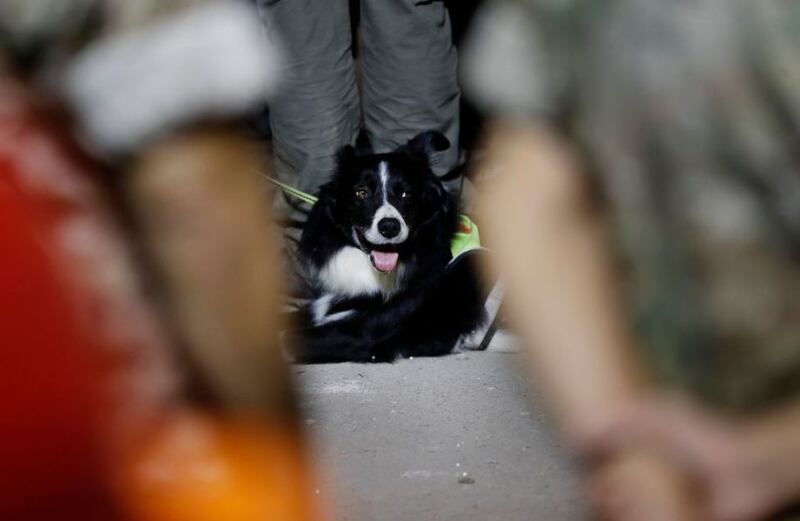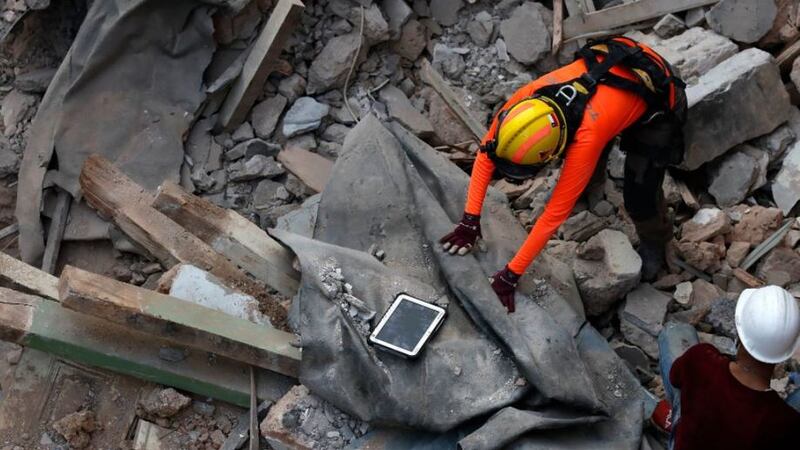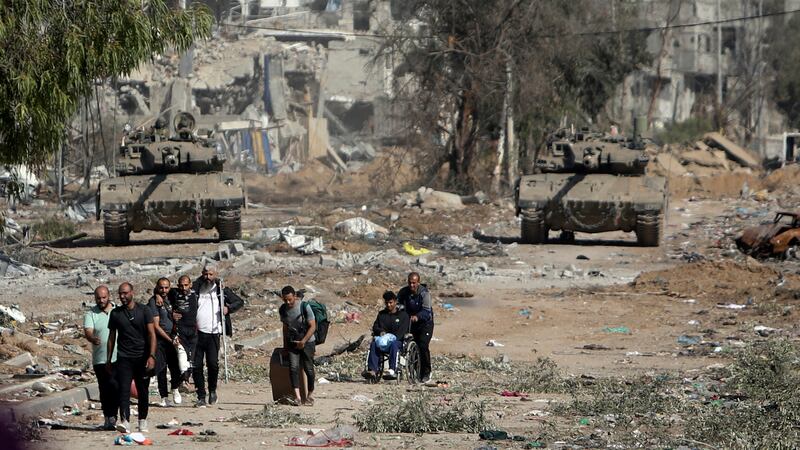Rescue workers have resumed search operations in a building that collapsed last month in Beirut's deadly blast in the hope of finding a survivor under the rubble after a pulsing signal was detected.
The search came as Lebanon marked a month since the blast that killed and wounded thousands of people and traumatised the country.
A moment of silence is planned to mark the most destructive incident in Lebanon's history on August 4.
Search operations began yesterday afternoon after a sniffer dog belonging to a Chilean search and rescue team detected something as the team was going through the neighbourhood of Gemmayzeh and rushed towards the rubble.
After hours of searching the work briefly stopped following sunset before some protesters arrived at the scene claiming the Lebanese army had asked the Chilean team to stop the search.
The protesters started searching themselves until members of Lebanon's Civil Defence team arrived an hour after midnight and resumed work.
The army issued a statement today saying the Chilean team stopped work half an hour before midnight because of fears that a wall might collapse, endangering them. It added that army experts inspected the site and two cranes were brought in to remove the wall and the search resumed.
This morning, rescue workers were slowly removing debris with their hands and shovels. The more they dug, the more careful the work became to protect any possible survivors under the rubble.
Yesterday, the team used audio detection equipment for signals or heartbeat, and detected what could be a pulse of 18 to 19 beats per minute. The origin of the pulsing signal was not immediately known but it set off a frantic search and raised new hope.
This morning, the beats dropped to seven per minute according to reporters at the site.
It is extremely unlikely that any survivors would be found a month after the blast that tore through Beirut when nearly 3,000 tons of ammonium nitrate ignited at the port.
The explosion killed 191 people and injured 6,000 others and is considered to be one of the biggest non-nuclear explosions ever recorded. Thousands of homes were damaged.
"Ninety-nine percent there isn't anything, but even if there is less than 1% hope, we should keep on looking," said Youssef Malah, a civil defence worker.
But a Chilean volunteer said their equipment identifies breathing and heartbeat from humans, not animals, and it detected a sign of a human. The worker, Francesco Lermonda, said it is rare, but not unheard of, for someone to survive under rubble for a month.



